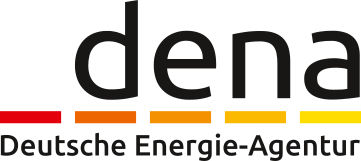Official handover of the license for the REEFUELERY
Press release

From the second quarter of 2024, the emission-free fuel REEFUEL (Bio-LNG & eLNG) will be produced in Germany. The permit for the construction and operation of the REEFUELERY plant in Burghaun was handed over on October 16, 2023 by Mark Weinmeister, District President of the Kassel administrative district. This marks another important milestone on the road to the climate-neutral transformation of heavy goods traffic.
Fulda/Burghaun, October 16, 2023. The majority of climate-neutral bio-LNG & eLNG is currently imported. The environmentally friendly fuel REEFUEL (Bio-LNG & eLNG) will soon also be produced in Germany. With access to the Central Germany Pipeline Link (MIDAL), the plant is being built in a strategically ideal location in Burghaun, Hesse. The renewable fuel REEFUEL will be produced here using green hydrogen generated from wind energy and biomethane from certified organic waste.
On October 16, 2023, the approval for one of the world's largest liquefaction plants for bio-LNG and eLNG was officially handed over by District President Mark Weinmeister. The Kassel Regional Council (Department of Immission Control and Energy Management) carried out the immission control approval procedure for the project. "We are delighted to soon have one of the largest liquefaction plants for sustainable LNG in the world in the region. The production of sustainable fuels and alternatives to fossil fuels creates independence and is an important step towards our ambitious climate targets. Due to its central location in Germany, the Northeast Hesse region has a key role to play here," said Weinmeister.
Plant takes shape
After progress has already been made in the construction of the plant with the granting of permits for the early start of construction, this approval is a further step towards ensuring that the REEFUELERY can start test operations as planned in the second quarter of next year. An essential machine component, the compander from Atlas Copco, was last delivered in September 2023. Alongside other components, the compander is responsible for the liquefaction process. The heart of the system compresses and expands the cooling medium nitrogen, thereby generating the cold required for the liquefaction process at minus 162 degrees Celsius. In addition, four 300 cubic meter storage tanks for REEFUEL (Bio-LNG & eLNG) were delivered and installed in August 2023. The double-walled tanks were manufactured by Lapesa in Spain especially for the project in Fulda.
After the start of operations, up to 180 tons of Bio-LNG and eLNG for Alternoil's renewable fuel REEFUEL will be produced and stored in these tanks every day. Benedikt Rolfes, Project Manager at REEFUELERY GmbH: "The major and significant progress in the construction process allows us to look forward to the coming year with confidence. We look forward to soon being able to produce our own organic and synthetic LNG and offer it in large quantities via the nationwide Alternoil network. Thanks to the dedicated work of everyone involved, the handover of the permit was completed perfectly on schedule." The emission-free fuel produced in the REEFUELERY can be used to operate around 4,500 LNG trucks in a climate-neutral manner. Regional and centralized production and an optimal connection to the Alternoil filling station network will save further CO2 emissions along the entire value chain. This enables stable, competitive prices for end consumers. REEFUELERY also creates independence from gas imports through domestic production of important fuel alternatives.
REEFUELERY GmbH
REEFUELERY is one of the largest liquefaction plants for biological and synthetic fuels and is being realized by a joint venture consisting of avanca Energy AG and Erdgas Südwest GmbH. It is strategically located with access to the Central Germany Interconnector Pipeline (MIDAL). Green hydrogen and carbon are used to produce e-methane, which, like biomethane, is then liquefied into eLNG and bio-LNG at minus 162 degrees Celsius in the REEFUELERY plant. In combination, this produces the truck fuel alternative REEFUEL. The project contributes significantly to the defossilization of the transport sector and will reduce the ecological footprint by up to 550,000 tons of CO2 per year.


